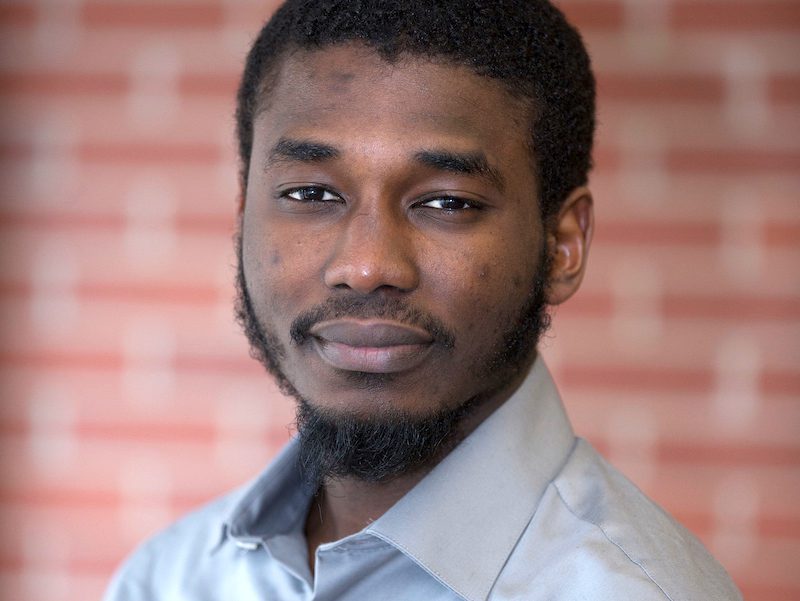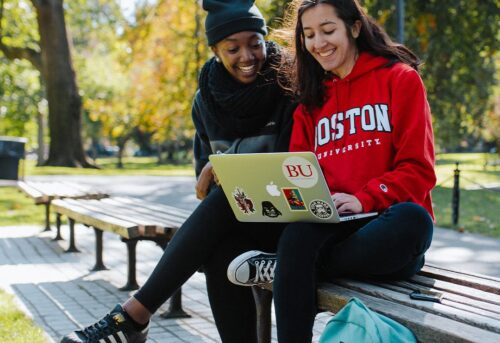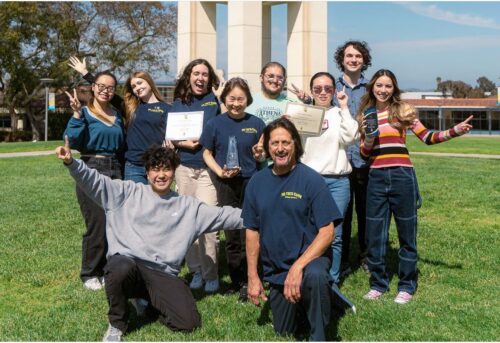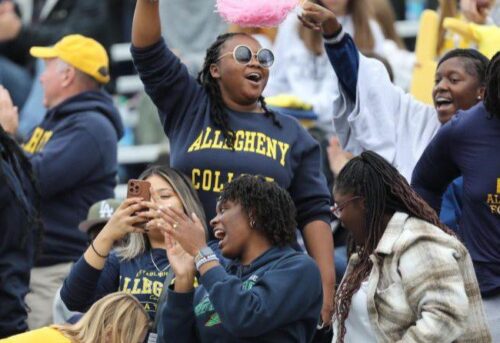At 26, Mouhamad S. Diallo has already been published in research journals three times — the first while he was attending Des Moines Area Community College (DMACC) in Iowa. It’s rare for a community college student to be published in a national academic journal; for Mouhamad, it put him one step closer to his goal of conducting graduate research at the University of California at Berkeley, where he starts this fall.
Mouhamad was born and raised in Senegal, and in 2013 he moved to the United States to pursue an education. He enrolled at DMACC in the fall of 2014, after seeing his sister and older brother attend the school and successfully transfer to Iowa State University.
He served as an officer in the STEM Club and his Phi Theta Kappa chapter, and he was co-president of the honors program. At the end of his first academic year, he accepted a research position at Iowa State University.
“My campus, DMACC Boone Campus, was a great environment,” he said. “The teachers were all caring and ready to support me anytime I needed help. Everything was there at the right time.
“For example, because I was able to get a research experience early and got lucky to be given the opportunity to extend that experience beyond summer, I was able to make connections and secure my research position even after I transferred to Iowa State University.”
Mouhamad’s research focused on “the characterization of thermal conductivity of a ceramic compound infused with metallic particles.” He spent 10 weeks during the summer of 2015 in the Iowa State lab doing the experiments and reading scientific papers on the topic.
His research was published in Physics Letters A, a publication for novel theoretical and experimental frontier physics, in 2016, and he continued his work at Iowa State as a research assistant through the 2015-2016 academic year.
He continued to be active at DMACC as well, helping his PTK chapter organize a 5K fundraiser for veterans called “In My Boots.” He received the Coca-Cola Leaders of Promise Scholarship and was named a Coca-Cola Academic Bronze Scholar.
Mouhamad also participated in the Louis Stokes Alliances for Minority Participation (LSAMP) program, which helps colleges increase the number of STEM degrees awarded to historically underrepresented populations.
“Part of what contributed to my positive experience in college was the fact that I was able to find mentors and peers in student-led organizations who were very helpful and supportive,” he said.
Mouhamad transferred to Iowa State University in fall 2016, where he focused on continuing his research. In 2016, he was named a Boeing Company Scholar and an Iowa State University McNair Scholar, which readies minority students for graduate school through research, graduate school preparation, and personal experiences.
Each step in his college experience was taken with one goal in mind: UC Berkeley.
“I joined research-based organizations, which helped enhance my research and engineering skills,” he said. “I received funding for my research and got support and resources to make sure that my research skills were enough to join grad school.
“I just used my time in college to get ready for grad school.”
Mouhamad graduated from Iowa State in spring 2019 with degrees in mechanical engineering and material science engineering. He leaves with three publications and four years of research under his belt.
The admission rate for UC Berkeley’s graduate program is slim: in fall 2018, only about 10 percent of applicants were accepted. Still, Mouhamad encourages community college students to apply. Where you begin your education is just part of your journey, he said, even if you didn’t begin at a selective school.
He also encourages students to make their learning experience relevant, to use their time in community college wisely, and to challenge themselves. Don’t take the easy way out. For example, as a native French speaker, taking French in college would have all but guaranteed easy A’s; but for Mouhamad, that would have defeated the purpose of learning.
“I understand that getting a 4.0 is important, but I think it is equally important to take classes that are challenging and allow the student to feel more interested in his or her field of study,” he said.
